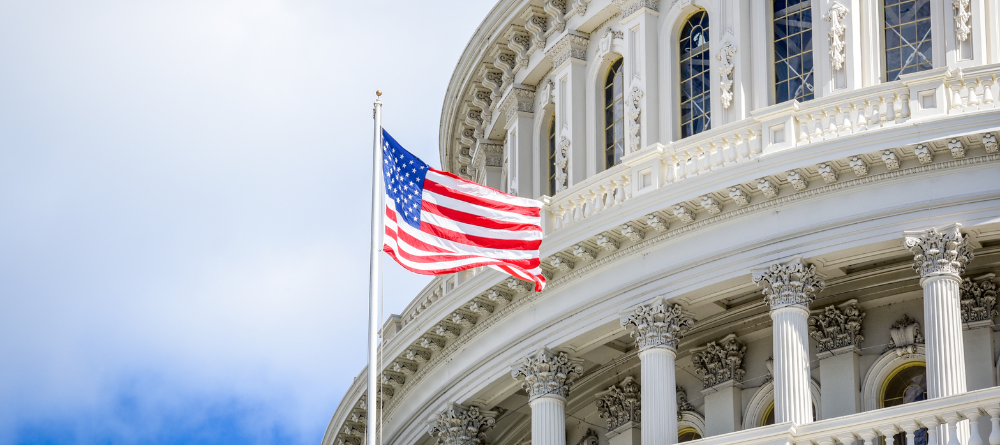Highlights from the One Big Beautiful Bill Act

The recently signed One Big Beautiful Bill, now officially the One Big Beautiful Bill Act (OBBBA), updates the tax code for individuals, businesses, and investors. For business owners, the OBBBA extends many of the favorable provisions from the prior Tax Cuts and Jobs Act (TCJA) while implementing reforms designed to modernize the tax landscape and drive business growth. Below, we’ve summarized the key tax highlights with a focus on the changes most relevant to your business operations, planning, and compliance.
Key Highlights:
Enhanced Expensing for Businesses
Beginning January 19, 2025, businesses can take advantage of enhanced bonus depreciation, fully deducting the cost of qualifying property and equipment upfront. Section 179 expensing limits also increase, starting January 1, 2025.
Full Deduction for R&D Costs Restored
Starting in 2025, companies can immediately deduct domestic research and development costs, including certain previously capitalized expenses. Special options are included for small business taxpayers to take added advantage.
Increased Business Interest Deduction
From 2025 on, businesses may be able to deduct more of their interest expense, due to a return of the depreciation and amortization addback when calculating the Section 163(j) limitation. This change is especially significant for capital-intensive industries.
Higher SALT Deduction Limit (But Temporarily)
The state and local tax (SALT) deduction cap has been raised to $40,000 ($20,000 if married filing separately) for those with modified adjusted gross income (AGI) up to $500,000 ($250,000 for married filing separately). Both the SALT cap and the AGI thresholds will increase by 1% annually through 2029. For taxpayers in the 37% bracket, the deduction may be limited by overall itemized deduction rules. Please note: this benefit is temporary—starting in 2030, the cap drops back to $10,000.
Current Tax Rates Extended
The familiar income tax rates and brackets for individuals, estates, and trusts remain in place and will be adjusted annually for inflation. This provides greater certainty for families and businesses planning for the years ahead.
Permanent Pass-Through Business Deduction
Owners of qualified pass-through businesses (like partnerships, S corporations, and LLCs) can continue to benefit from the 20% tax deduction on qualified business income. This deduction is now permanent, keeping the top rate on this income at 29.6%.
Larger Estate and Gift Tax Exemption
Starting in 2026, individuals can transfer up to $15 million (adjusted for inflation) during their lifetime or at death without facing estate or gift taxes, providing more flexibility and predictability in estate planning.
SALT Cap Workaround Preserved
Despite previous proposals, the law does not include new restrictions on the popular pass-through entity tax (PTET) workaround for SALT deductions. This is a win for many business owners—thanks in part to strong lobbying efforts.
Changes to Tax Credits
Several tax credits created or expanded under the Inflation Reduction Act (IRA) will be significantly changed or phased out. It’s important to review which credits may be affected if you rely on them for tax savings.
New Reporting Rules for Tips and Overtime Deductions
Employees can now deduct certain tips and overtime pay from their federal taxable income. However, employers must continue to report these amounts accurately on Form W-2. Payroll systems may require updates to comply with reporting requirements.
Changes to the Employee Retention Credit (ERC)
The IRS now has an extended period—at least six years from the date the claim is filed—to review ERC claims for the third and fourth quarters of 2021. Additionally, the IRS will not process refunds for ERC claims for those periods if filed after January 31, 2024.
Opportunity Zone Program Renewed
The popular program aimed at promoting investment in economically distressed communities has been renewed and modified, continuing to offer incentives for targeted development.
Changes to Tariffs
The law repeals the de minimis commercial import exception to U.S. tariffs, effective July 1, 2027. This change may impact importers and businesses that rely on small-value shipments from abroad.
Bigger Tax Break for Small Business Investors
The OBBBA expands who qualifies for, and how much gain can be excluded from tax when selling qualified small business stock—encouraging growth and investment in America’s small businesses.
What’s Next?
The OBBBA is a comprehensive and intricate piece of legislation that will necessitate the development of numerous regulations for full implementation. While the Treasury Department will play a central role in issuing guidance, additional federal agencies are also expected to contribute to the regulatory process.
Over the coming months, we will dig deeper into these changes, digest the technical guidance as it becomes available, and provide timely updates and tailored advice to help you make the most informed decisions possible. If you have immediate questions about how this new law affects you, your family, or your business, we encourage you to contact your trusted advisor. We’re here to help.
Disclaimer: This article is for informational purposes only and does not constitute legal or tax advice. Always consult a qualified professional for guidance specific to your situation.
Questions about the One Big Beautiful Bill Act?
Meet our tax advisor and get answers to your questions.
Questions about the One Big Beautiful Bill Act?

Mike Stoltzfus, CPA, MST
Learn More About Our Services
"*" indicates required fields
